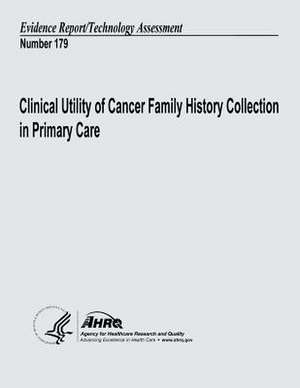Clinical Utility of Cancer Family History Collection in Primary Care
Autor U. S. Department of Heal Human Services, Agency for Healthcare Resea And Qualityen Limba Engleză Paperback
Preț: 161.71 lei
Preț vechi: 170.23 lei
-5% Nou
Puncte Express: 243
Preț estimativ în valută:
30.94€ • 32.23$ • 25.80£
30.94€ • 32.23$ • 25.80£
Carte disponibilă
Livrare economică 07-21 martie
Preluare comenzi: 021 569.72.76
Specificații
ISBN-13: 9781489524478
ISBN-10: 1489524479
Pagini: 204
Dimensiuni: 216 x 280 x 11 mm
Greutate: 0.49 kg
Editura: CREATESPACE
ISBN-10: 1489524479
Pagini: 204
Dimensiuni: 216 x 280 x 11 mm
Greutate: 0.49 kg
Editura: CREATESPACE
